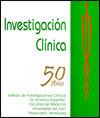EDITORIAL. El dilema del Editor ante las circunstancias actuales de la comunicación científica.
IF 0.1
4区 医学
Q4 MEDICINE, RESEARCH & EXPERIMENTAL
引用次数: 0
Abstract
Recently the scientific community has been the subject of much controversy due to some facts that have arisen. One was the withdrawal of journals by the Web of Science for not carrying out adequate peer review processes and publishing articles lacking in scientific rigor in exchange for high publication costs. In fact, it can be verified that it is common to find works that appear accepted just two or three days after the date of receipt, making it doubtful of an adequate review. Many advocate “Open Science” as the freedom to commu-nicate results without the consent of referees or the sometimes very rigorous requirements of scientific journals. Another example case was that of a researcher sanctioned by his Uni-versity for considering the excessive authorship of works published by the said individual in a very short time, which seems to be doubtful. It is common to find cases of researchers advising working groups from various countries outside their country of origin, perhaps only as statistical analysts or offering their recognized names to stimulate the citation of an in-stitution or country. It would then be appropriate to ask the question: What would be the number of publications that an author may have so that it is not suspected of gratifying or convenient authorship, for himself or for the institution to which he belongs? On the other hand, it is known that authorship of papers may be obtained in high-impact journals through payments or citations that do not correspond to the topic dealt with in the work. Indeed, we have discovered some contributions with out-of-context citations in Investigación Clínicathrough a rigorous analysis of the references. Worse still, it is the communication, carried out by any individual who is not an expert in a field, through the most popular social net-works, of concepts that deeply permeate public opinion in general, being transmitted as if they were proven facts and therein the danger, in the specific case of Medicine, damage to health. For all of the above, the Editors of scientific journals must be very vigilant and ready to discuss the advantages or inconveniences of modern initiatives, the influence of social media in disseminating information, and knowing how to interpret their impact on public health. On the other hand, Journals have to balance the role of citations and impact indexes in the projection of Science individuals, as some academic institutions in European (Spain) or Asian (China) countries are doing.出版商。编辑在当前科学传播环境下的困境。
最近,由于出现了一些事实,科学界一直是争论的主题。其中之一是科学网(Web of Science)撤销了一些期刊,原因是这些期刊没有进行充分的同行评议过程,发表了缺乏科学严谨性的文章,以换取高昂的出版成本。事实上,可以证实的是,在收到日期后的两三天内发现作品似乎被接受是很常见的,这使人们怀疑是否进行了充分的审查。许多人提倡“开放科学”,因为在没有审稿人同意或科学期刊有时非常严格的要求的情况下,可以自由地交流结果。另一个例子是,一名研究人员因在很短的时间内认为该个人发表的作品有过多的作者身份而受到大学的制裁,这似乎是值得怀疑的。经常会发现一些研究人员为来自不同国家的工作小组提供咨询,也许只是作为统计分析师,或者提供他们公认的名字,以刺激对某个机构或国家的引用。那么,我们应该问这样一个问题:一个作者可以发表多少篇文章,才不会被怀疑为他自己或他所属的机构满足或方便了作者身份?另一方面,众所周知,在高影响力期刊上,论文的作者身份可能是通过与工作中处理的主题不对应的付款或引用来获得的。事实上,我们在Investigación Clínicathrough对参考文献进行了严格的分析后发现了一些非上下文引用的贡献。更糟糕的是,任何不是某一领域专家的个人,通过最流行的社会网络,传播普遍深入公众舆论的概念,仿佛这些概念是经过证实的事实一样传播,在医学的具体情况下,这有损害健康的危险。对于上述所有情况,科学期刊的编辑必须非常警惕,随时准备讨论现代倡议的优点或缺点,社交媒体在传播信息方面的影响,并知道如何解释它们对公共卫生的影响。另一方面,期刊必须像欧洲(西班牙)或亚洲(中国)的一些学术机构所做的那样,平衡引文和影响指数在科学个人预测中的作用。
本文章由计算机程序翻译,如有差异,请以英文原文为准。
求助全文
约1分钟内获得全文
求助全文
来源期刊

Investigacion clinica
MEDICINE, RESEARCH & EXPERIMENTAL-
CiteScore
0.20
自引率
50.00%
发文量
2
审稿时长
>12 weeks
期刊介绍:
Estudios humanos, animales y de laboratorio relacionados con la investigación clínica y asuntos conexos.
 求助内容:
求助内容: 应助结果提醒方式:
应助结果提醒方式:


